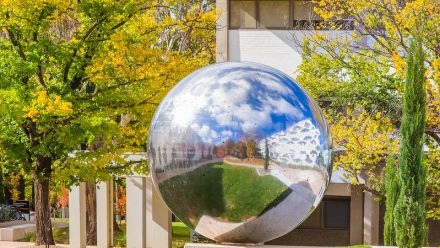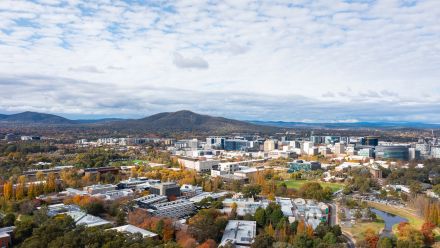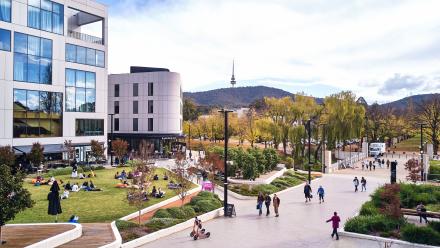Protecting our forests and communities
In recent years, devastating bushfires have ravaged landscapes, destroyed homes, and threatened lives across Australia. In the face of this escalating crisis, researchers at The Australian National University (ANU) have been at the forefront of pioneering efforts to understand and mitigate the impacts of wildfires on our environment and communities. Central to these efforts is the invaluable support of the ANU donor community, whose generosity has fuelled ground-breaking research led by Professor David Lindenmayer.
The support of ANU donors has enabled Professor Lindenmayer and his team to research the intricate complexities of fire ecology, uncovering critical insights into how human activities affect the flammability of our forests. In a landmark study conducted in collaboration with Curtin University, Professor Lindenmayer and his colleagues explored the often-overlooked link between forest disturbance, prescribed burning, and increased fire risk.
What they discovered was both illuminating and concerning: disturbances such as logging and prescribed burning, intended to reduce fuel loads and mitigate fire risk, can in fact make our forests more susceptible to wildfires. By disrupting the natural ecosystem and removing key elements that regulate fire behaviour, these activities can inadvertently fuel the very fires they were meant to prevent.
Thanks to the support of ANU donors, Professor Lindenmayer’s research has not only brought these critical issues to light but has also paved the way for transformative change in fire management strategies. By challenging conventional approaches and advocating for a more holistic understanding of fire ecology, Professor Lindenmayer and his team are driving a paradigm shift in how we approach wildfire prevention and response.
Crucially, the impact of this research extends far beyond the realm of academia. By informing policymakers, empowering land managers, and engaging with communities, Professor Lindenmayer and his colleagues are working to protect our forests and safeguard the well-being of those who call them home.
But perhaps most importantly, the support of ANU donors has enabled Professor Lindenmayer and his team to offer practical forest management strategies to overcome these challenges. By arming us with knowledge, insights, and innovative solutions, they are identifying a future where our forests are resilient, our communities are safe, and our natural heritage is preserved for generations to come.
These outcomes highlight the profound impact that each and every contribution can have on our shared mission to protect the natural world and fuel a movement for positive change – one that will leave a lasting legacy of resilience, stewardship, and hope.


